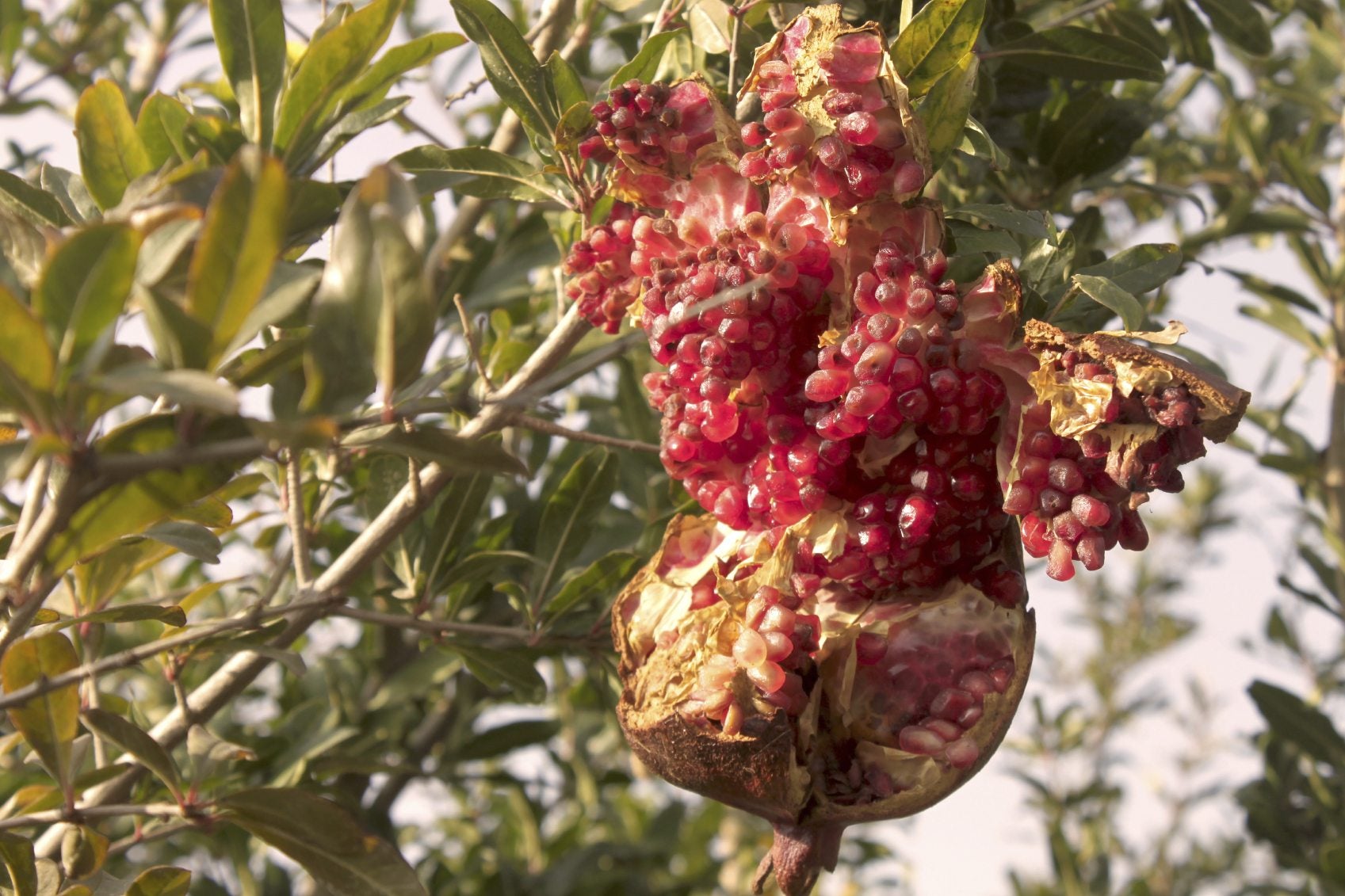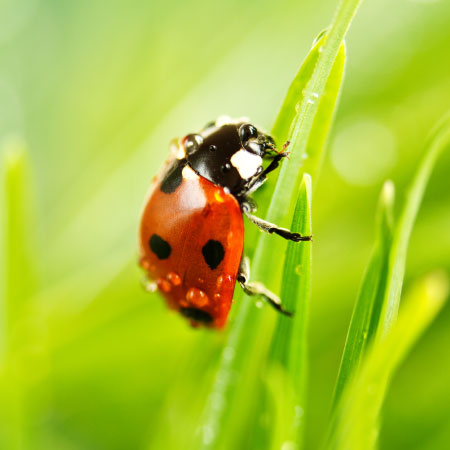Splitting Pomegranate Fruit: Reasons Pomegranates Split Open On The Tree


Sign up for the Gardening Know How newsletter today and receive a free copy of our e-book "How to Grow Delicious Tomatoes".
You are now subscribed
Your newsletter sign-up was successful
Waiting all year for your juicy, fresh pomegranates to mature can be a real killer-- much more so when they suddenly start splitting just before harvest. Splitting fruits can be hugely frustrating, especially when you've been eagerly awaiting pomegranates for a full season. If your pomegranates split open on the tree, it might seem like it's time to break out the chainsaw, but before you commit a pomegranate massacre, consider why your pomegranates are cracking. We'll walk you through the most common problems pomegranate growers have with splitting pomegranate fruit in this article.
Why Does Pomegranate Split?
There are a couple of very common reasons for split pomegranate fruit on a well-cared for tree. In fact, one of them may be caused by a tree getting a little too much care. Fungal pathogens are notoriously frustrating causes of split fruit. In fact, they often strike just as the fruit is ripening. Fungal diseases are often accompanied by leaf spots, premature leaf drop, or other leaf damage, but sometimes the fruit is the lone target. Controlling fungus on pomegranate can be tricky. Since they're not considered primarily a cash crop, little research has gone into the diseases that plague these plants. However, if you apply copper fungicide to your plant next season as the fruits are just starting to grow, you may be able to kill off the fungal spores before they infiltrate your fruits and cause more pomegranate fruit split problems. The other main cause of splitting pomegranate fruit is the same as with many other fruits: irregular watering. During crucial points in fruit development, it's vital that the water entering the plant's system is fairly regular and even; otherwise, different parts of the fruit will develop at different speeds, resulting in splitting and ruined fruits. You can prevent splitting by mulching your tree heavily with at least 3 inches (8 cm.) of organic mulch and putting it on a watering schedule once the blooms are beginning to drop. Water evenly every few days without soaking the root system-- the mulch will help to prevent evaporation, so there's no need to overdo it. Too much water can encourage fruit-splitting fungus, so just water until the soil below the mulch is wet. Water more in the hottest part of the growing season, then taper down considerably as fall approaches.
Sign up for the Gardening Know How newsletter today and receive a free copy of our e-book "How to Grow Delicious Tomatoes".

Kristi Waterworth was a regular contributor to Gardening Know How for many years, answering countless queries on plant pests and diseases.